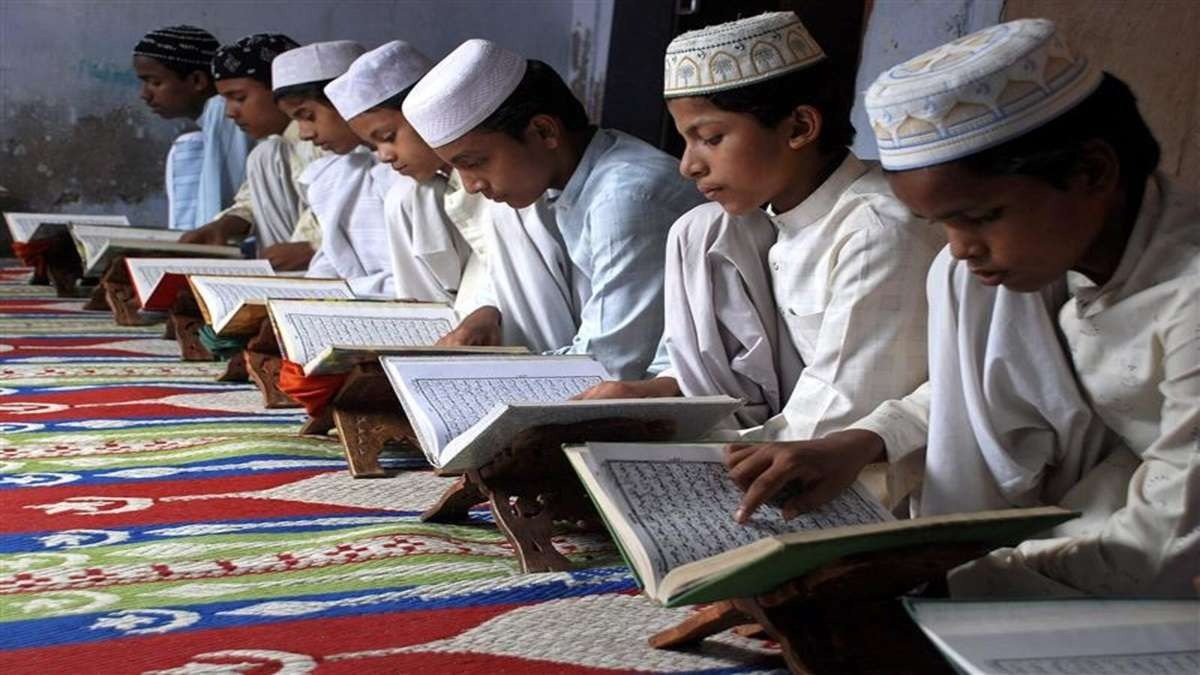
National: The Supreme Court on Tuesday declared the Uttar Pradesh Board of Madarsa Education Act, 2004 constitution. The apex court pronounced the verdict while hearing the pleas challenging the Allahabad High Court order that had scrapped the Uttar Pradesh Board of Madarsa Education Act, 2004, calling it "unconstitutional" and violative of the constitutional principle of secularism.
The development is a big relief for at least 17 lakh students studying in around 16,000 madarsas across the state.
Granted higher education degrees under fazil and kamil is unconstitutional: SC
Supreme Court said the UP Madarsa Act is only unconstitutional to the extent that it granted higher education degrees under fazil and kamil, which is in conflict with the UGC Act.
Maulana Khalid Rasheed Firangi, Eidgah Imam and member of All India Muslim Personal Law Board, said, "This decision has brought joy to the people related to Madarsas. UP Madarsa Act had been drafted by the UP government itself. How can an Act drafted by the government be unconstitutional?...We have said this earlier too that besides Islamic education, we impart modern education too at Madarsas."
Earlier, the apex court had stayed the high court judgement in April. This law was made by the state government in 2004 when Mulayam Singh Yadav was the chief minister.
A bench comprising Chief Justice D Y Chandrachud and justices JB Pardiwala and Manoj Misra said it will list the pleas for final disposal on November 5. It also appointed lawyer Ruchira Goel as nodal counsel for ensuring filing of common compilation of documents in electronic form.
Senior advocate Abhishek Singhvi, appearing for one of the petitioners, said a contempt petition against the state government has also been filed.
What SC said while staying HC order
"The object and purpose of Madarsa board is regulatory in nature and the Allahabad High Court is not prima facie correct that establishment of board will breach secularism," the top court had said while staying the HC verdict. The bench had said the high court "prima facie" misconstrued the provisions of the Madarsa Act, which did not provide for any religious instruction. The apex court had said the high court, while striking down the provisions of the Madarsa Act, directed relocation of the students.
17 lakh students to be affected
"This would affect 17 lakh students....we are of the view that the direction of relocation of students to other schools was not warranted," it had said.
Additional Solicitor General K M Nataraj, appearing for Uttar Pradesh, had submitted that the state government defended the Act but has accepted the high court's judgement which struck down the law.
"When the state accepts the judgement, the state cannot be burdened to bear the expenses of the legislation now. The State is competent to repeal the legislation as well. If the matter requires consideration, then I am not coming in the way," Nataraj had said, adding no madarsa is being shut down by the government.
Government bears a financial burden of Rs 1,096 crore every year
Nataraj said the Uttar Pradesh government bears a financial burden of Rs 1,096 crore every year in aid to madarasas.
High Courts declared Uttar Pradesh Board of Madarsa Education Act unconstitutional
The high court had on March 22 declared the Uttar Pradesh Board of Madarsa Education Act, 2004, "unconstitutional" and violative of the principle of secularism, and asked the state government to accommodate students in the formal schooling system.
The high court had declared the law ultra vires on a writ petition filed by advocate Anshuman Singh Rathore.
--Advertisement--

 Desk
Desk Share
Share



